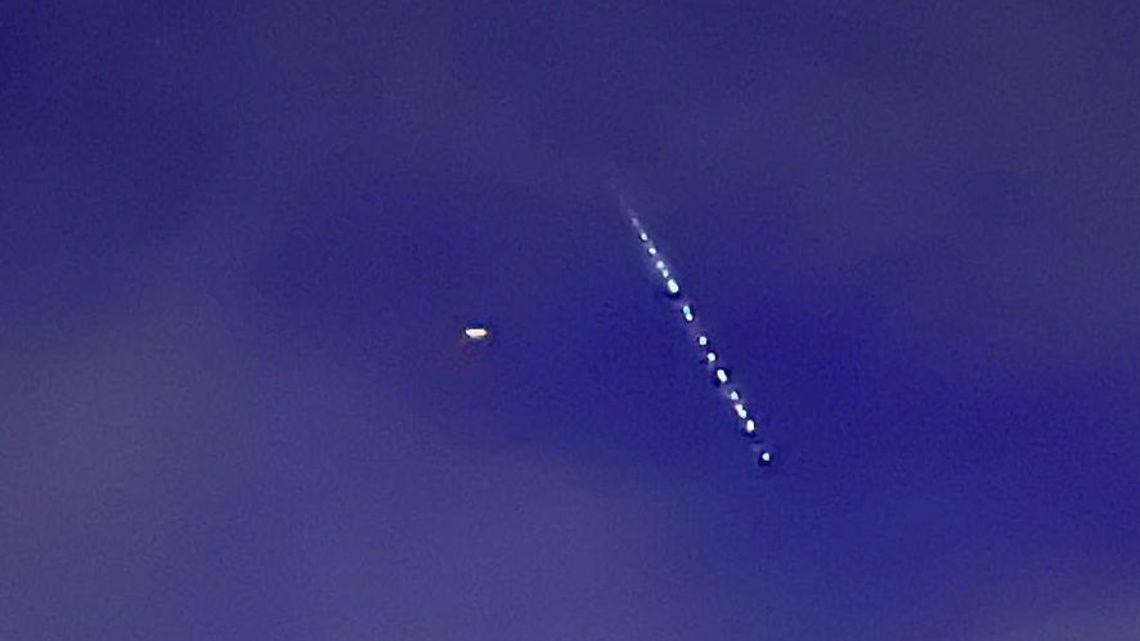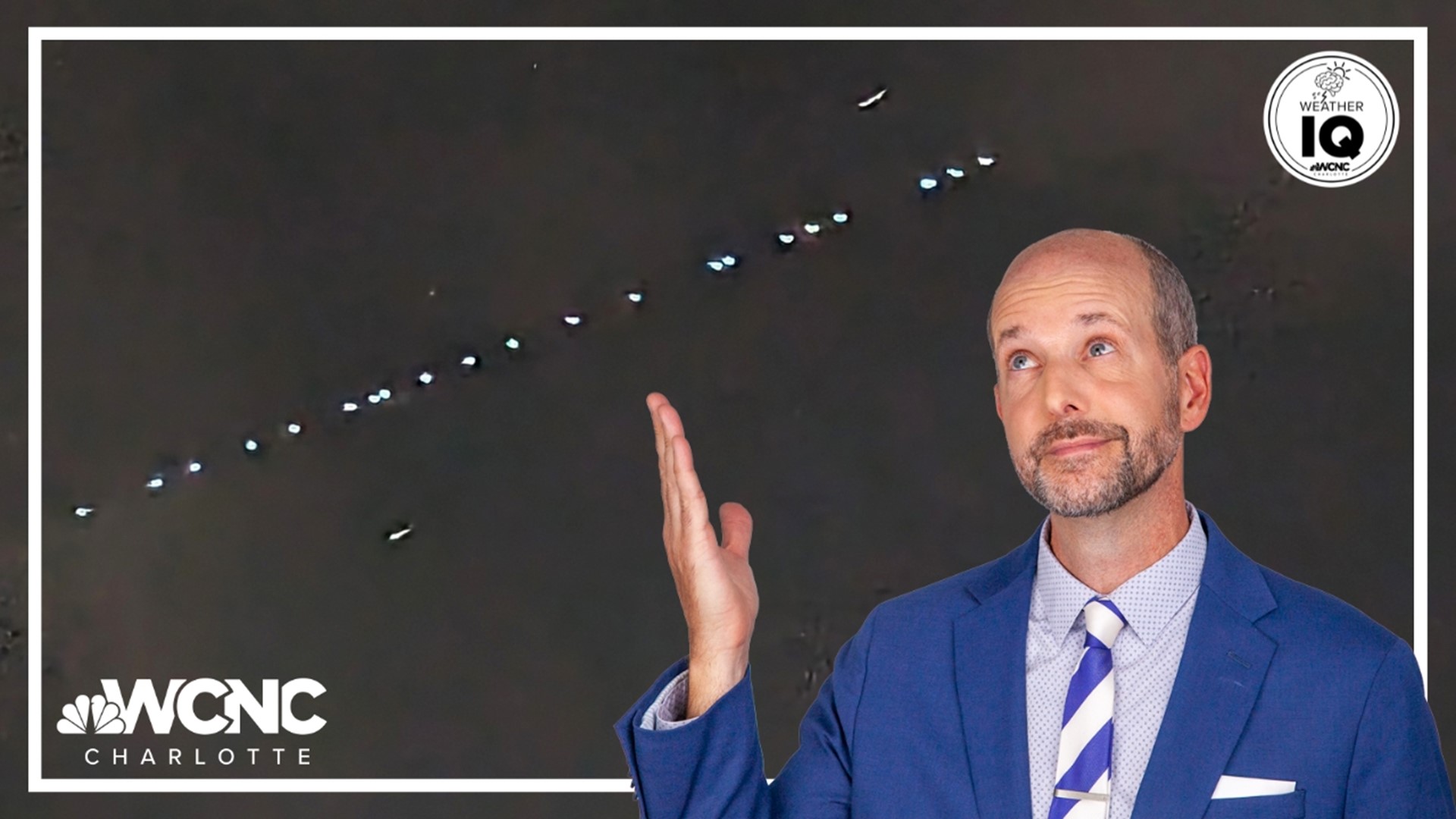CHARLOTTE, N.C. — The Starlink satellites have been visible in the sky the last couple of nights, and there will be a few more opportunities to see the train of lights in the sky.
What are Starlink satellites?
Starlink is a satellite network developed by SpaceX, owned by Elon Musk. Starlink uses a network of more than 2,000 satellites orbiting Earth more than 340 miles up. The company is continuing to launch satellites in batches as part of its goal of providing high-speed broadband internet around the world, particularly in places with poor connectivity.
"Most satellite internet services come from single geostationary satellites that orbit the planet at 35,786 km," the Starlink website says. "Starlink is a constellation of thousands of satellites that orbit the planet much closer to Earth, at about 550km, and cover the entire globe."
The satellites have played a role in keeping Ukrainians connected to the internet since the Russian invasion of the country. Last February, Musk sent truckloads of equipment to Ukraine to allow people there to use the satellite-based internet service even as Russian forces cut off other internet access.
The system was also used in Tonga after a huge volcanic eruption and tsunami severed a crucial undersea cable, cutting off its main internet connection for weeks.
Why we see the satellite train


SpaceX frequently launches new satellites into space to join its growing network. A recent launch from Cape Canaveral sent 56 new Starlink satellites into orbit.
On a clear night and with minimal light pollution, you may be able to catch a glimpse of the satellites in orbit.
The satellites are easiest to spot within days of their launch. Once the Starlink satellites reach an operating altitude of about 340 miles, they disperse and can look like stars in the night sky. Eventually, shields are deployed making them virtually impossible to see with the naked eye.
The satellites do not have lights of their own. The satellites reflect sunlight, much to the frustration of astrophotographers who photograph stars in the night sky. The large number of satellites being launched by Starlink and other companies, including Amazon, have been a source of frustration for some, though. The "satellite pollution" created by the thousands of orbiting objects makes it difficult for astronomers to observe space.
The satellites, which are commonly misidentified as UFOs, are frequently called the "satellite train" or "space train."
When to see Starlink satellites over Charlotte
The satellites were spotted over the Carolinas in recent weeks.
Another pass on Tuesday night has a good chance of being visible.
Starlink is expected to make a pass north of Charlotte traveling from west to east. The satellite train could be visible between 8:43 p.m. and 8:50 p.m., give or take a few minutes, according to WCNC Charlotte Chief Meteorologist Brad Panovich.
Findstarlink.com, a website that tracks when the satellites will be visible in various locations, said there is another chance for "good visibility" of a pass in Charlotte on Friday at 8:12 p.m. A pass with "average" visibility was listed for Wednesday morning at 6:19 a.m.
Forecasting visible passes is difficult. The satellites are only visible within a few days of launch and last-minute changes to the launch schedule make anything but short-term predictions possible. Clear skies with just the right angle from the sunset or sunrise are needed.
Tegna's WXIA, WTHR, WFMY, and KFSM contributed to this report
WCNC Charlotte’s Weather IQ YouTube channel gives detailed explainers from the WCNC Charlotte meteorologists to help you learn and understand weather, climate and science. Watch previous stories where you can raise your Weather IQ in the YouTube playlist below and subscribe to get updated when new videos are uploaded.

